Forest Botanicals Week
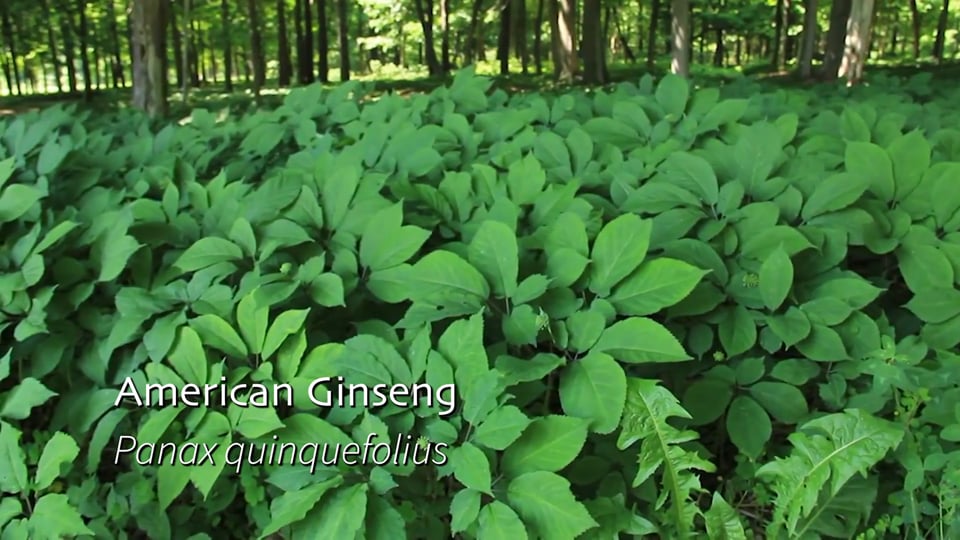
Our Forests. Our Future.
“If we choose to use plants as our medicine, we then become accountable for the wild gardens, their health and their upkeep.”
– Rosemary Gladstar
What is Forest Botanicals Week?
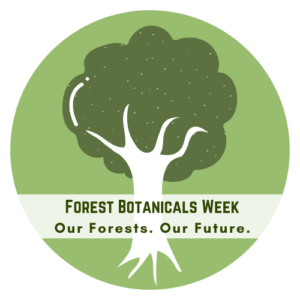
Forest Botanicals Week (held May 18-22, 2020) was a free online public awareness campaign supporting a sustainable, responsible, and equitable supply of Appalachian forest botanicals. We are leaving this content up on the website for those interested in learning more about Appalachian botanicals and forest farming in the region.
COVID-19 is waking the world to our interdependence and relationship with the earth. For those of us who love and use medicinal plants, this is an opportunity to shape the future of herbal medicine. Yet what does it mean to be accountable for the health of the forests and gardens where medicinal plants grow? What does good stewardship actually look like? Most importantly, how can you help?
Appalachian forest botanicals – American ginseng, goldenseal, black and blue cohosh and others – are perennial medicinal herbs that grow in some of the most biodiverse forests in the world. These plants have been traded as commodities for centuries, providing an income when times are tight. As a result of overharvesting and habitat loss, however, wild populations of forest botanicals are declining and some are now considered at-risk.
Forest Botanicals Week celebrated these medicinal plants growing in the Appalachian woodlands and the people and communities who depend upon them. We hoped to spark curiosity about the issues and inspire people to join the cause. And we hope our advocacy motivated viewers to reflect more deeply on the ways our choices impact the world and how you can help make a difference.
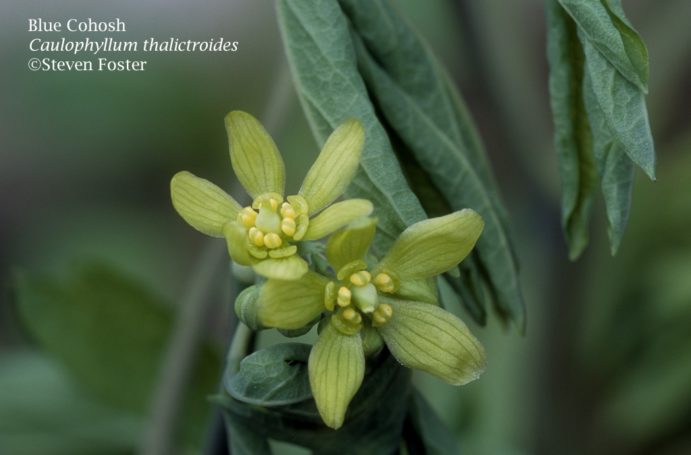
Blue cohosh. Photo by Steven Foster.
Why Should I Care?
When we buy an herbal product, we want it to work. We want to know that the claims on the bottle are true, that the plants were identified correctly by harvesters and that no others were mixed in. We want to make sure those plants were handled properly, that they were harvested at the right time and dried and stored in the correct way. Many of us also want to know that the plants were harvested sustainably to ensure their regeneration. We care that the collectors, those hauling heavy sacks up steep mountain slopes, are paid a fair wage.
In an uncertified supply chain, when raw material is bought on the open market without being able to trace it to the source, it can be impossible to know if any of these conditions have been met. Though companies may claim their products are high quality and sustainably and ethically sourced, it can be hard to verify that that is true.
Sustainable and Ethical Sourcing in the United States
Some herbal product companies are investing in sourcing fair trade certified wild harvested plants from international markets. Yet fewer make those same commitments to the ensuring the sustainability of wild plants in the United States and to the traditional wild crafting communities in the United States. We hope to change that – and that’s where you come in!
This campaign highlights exciting initiatives in Appalachia to develop sustainable and ethical supply networks of forest botanicals.
Over the course of the week, we will share stories, videos, and resource about these initiatives. We invite you to join us in the journey, to learn more about the people and plants from Appalachia, and discover how you can help.
What Can You Do?
The first step is to celebrate the plants! With our partners (see below), each day offers stories, videos, and action steps on one particular issue. We invite you to follow along on social media, deepen your understanding, and share what you discover.
The next step is letting the herb industry know that you care and are paying attention!
As a conscious consumer, you have the purchase power to shape a sustainable future for forest botanicals. See the steps below for ways to get involved and have meaningful impacts today!
Topics
Meet the Organizers
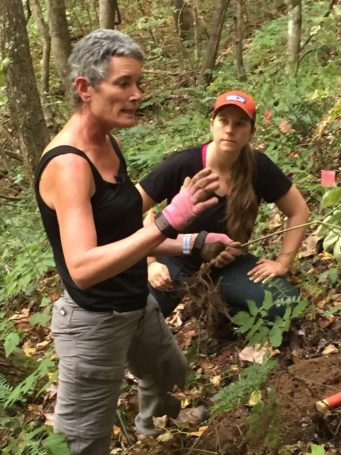
Katie Commender (r) meets with forest farmer Theresa from SW Virginia. Photo by Ann Armbrecht.
Forest Botanicals Week was brought to you by the Sustainable Herbs Program (SHP) and Appalachian Sustainable Development’s (ASD) Appalachian Harvest Herb Hub (ASD).
Ann Armbrecht, SHP, and Katie Commender, ASD, first thought of the idea for this campaign during a panel presentation at the American Herbalist Guild Symposium in 2018, where consumer education was identified as a critical next step for forest botanical sustainability. That conversation seeded this idea to produce a series of videos on forest farming and to launch this awareness campaign!
Campaign Partners
We joined forces with like-minded herb schools, herb companies, and organizations focusing on sustainability and medicinal plants. Please thank these companies and organizations for their support and leadership.
- American Botanical Council
- Appalachian Beginning Forest Farmer Coalition
- Chestnut School of Herbal Medicine
- Gaia Herbs
- HERBalachia
- Herb Pharm
- Learning Herbs
- Mountain Rose Herbs
- Red Moon Herbs
- Rosemary Gladstar’s The Science and Art of Herbalism
- United Plant Savers
- WishGarden Herbs
Acknowledgements
Forest Botanicals Week has been made possible through the support of the Appalachian Sustainable Development, The Thompson Charitable Foundation, and American Botanical Council. Content has been written by Ann Armbrecht and Katie Commender. Steven Foster and John Munsell have both provided additional content and editorial input. Videos are produced by Terrence Youk and Ann Armbrecht, Sustainable Herbs Program, and Appalachian Beginning Forest Farmer Coalition. Photographs are by Steven Foster, Katie Commender, and Ann Armbrecht.

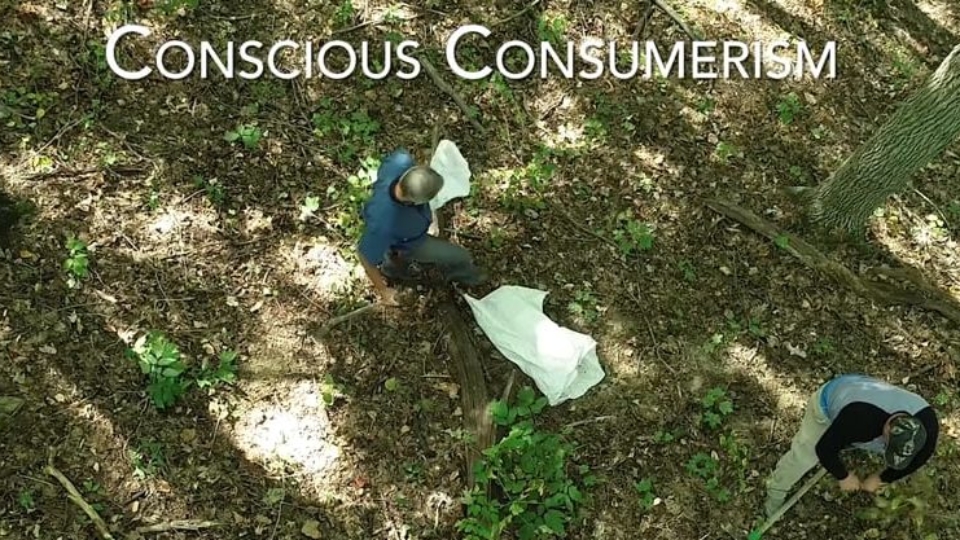
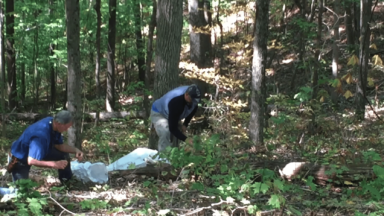
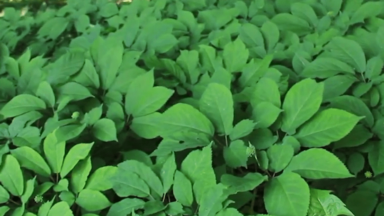
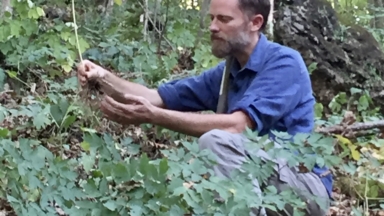
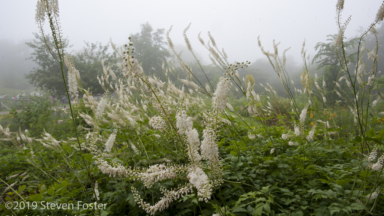
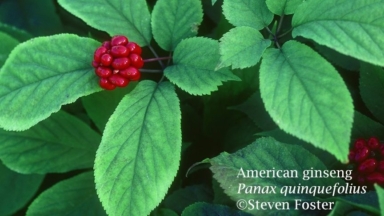
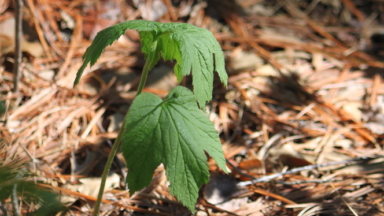
Comments